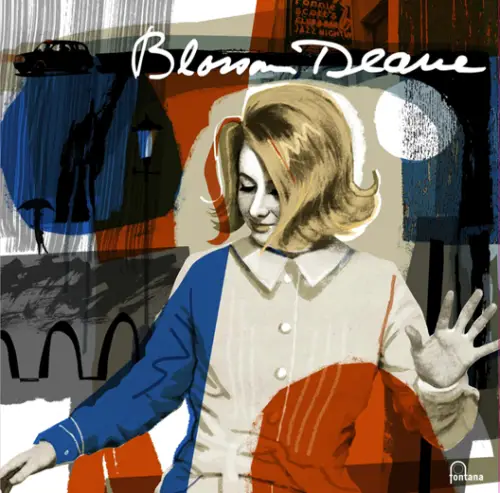Revered as a singular talent and performer, highly influential yet enigmatic and mysterious, pianist, singer and songwriter Blossom Dearie (1924-2009) was often described as ‘a musician’s musician’ and renowned for her originality, impeccable taste and striking vocals, aptly characterised by The New Yorker as a “baby voice” singing “postgraduate lyrics.”
Blossom Dearie was a very special artist. An exceptional pianist for starters, she put a pop sensibility into jazz and brought a jazz quality into pop, creating a sound that tied her neither to jazz precedent nor cabaret clichés. She was the first female artist to have her own successful independent record label (Daffodil Records) in the U.S. and her legacy features a gold standard list of admirers and collaborators, including jazz giants such as Miles Davis, Bill Evans, Michel Legrand and Georgie Fame, but also extending to some of the most celebrated singers heard over the past 50 years among them John Lennon, Kylie Minogue, Feist, Barbra Streisand, Christine Aguilera and the late Elliot Smith. Blossom also appeared on Bob Dorough’s cult classic 1973 LP ‘Multiplication Rock’ which provided the essential samples for De La Soul’s ‘The Magic Number’ and (using Blossom’s track, ‘Figure Eight’) The Fugees ‘The Score’.
Blossom’s recording career began in the 1950s and would go on to span an impressive five decades with three of the world’s most charismatic cities – New York, Paris & London – as the backdrop.
In the 1960s, Blossom spent much of her time in London where she swapped songs with mutual admirers John Lennon and Georgie Fame, set up her own publishing company Blossom Dearie Music which still operates and represents all her wonderful compositions, signed with Fontana Records and recorded four albums ‘Blossom Time At Ronnie Scott’s’, ‘Sweet Blossom Dearie’, ‘Soon It’s Gonna Rain’ & ‘That’s Just The Way I Want To Be’ (1966-70), the latter of which included the exquisite ‘I Like London In The Rain’. She became a regular on British TV during this time, often appearing alongside Peter Cook & Dudley Moore, as the BBC played a pivotal role in Blossom developing a worldwide following from her London base.
Released on 30th June, Blossom Dearie Discover Who I Am comprehensively documents that golden period, bringing together the four Fontana albums (and several singles) as well as 27 previously unheard tracks from her late ‘60s sessions that were discovered in the family home in East Durham, New York following her death.
These recordings were made with Ronnie Scott and his organisation (although exact details on dates and personnel have proved elusive) and include songs that appear nowhere else in her canon. There are renditions of early Blossom originals such as ‘Feeling Good Being Me’, ‘Inside A Silent Tear’ and the superb ‘Long Daddy Green’ as well brilliant interpretations of classics like ‘Something’ by George Harrison, Rogers & Hammerstein’s ‘My Favourite Things’, Burt Bacharach and Hal David’s ‘What The World Needs Now’, ‘The Joker’ by Leslie Bricusse and Anthony Newley and Buffy Saint Marie’s ‘Until It’s Time For You To Go’.
The audio has been remastered (or mastered in the case of the tracks making their debut here) by Simon Gibson at Abbey Road.
The beautifully designed hardback book features an extensive new biographical essay by Blossom’s friend Jaime Smith, representing her label, Daffodil Records. Many previously unseen photographs are included, provided by Blossom’s niece & nephew, who not only preserve but curate Blossom’s creative output. Their work lead to the discovery and presentation of this new music.
The first detailed exploration of this key period in Blossom’s life and career, this set also serves as a comprehensive introduction to a true original, an artist and performer deserving of much wider appreciation. And with the discovery and release of the previously unheard masters, Blossom’s time in London has now afforded her the opportunity to expand as a recording artist well into the 21st century; something of which she would have likely approved because Blossom never looked to the past and maintained that any skilful analysis of her must start today and then quickly reach into the future.
And yet, as is outlined in this set, if her personal, performing and recording paths had not crossed at Ronnie Scott’s Club in early 1966, followed by those Fontana albums and a decade of London residencies, there might not have been a future to write about at all.
